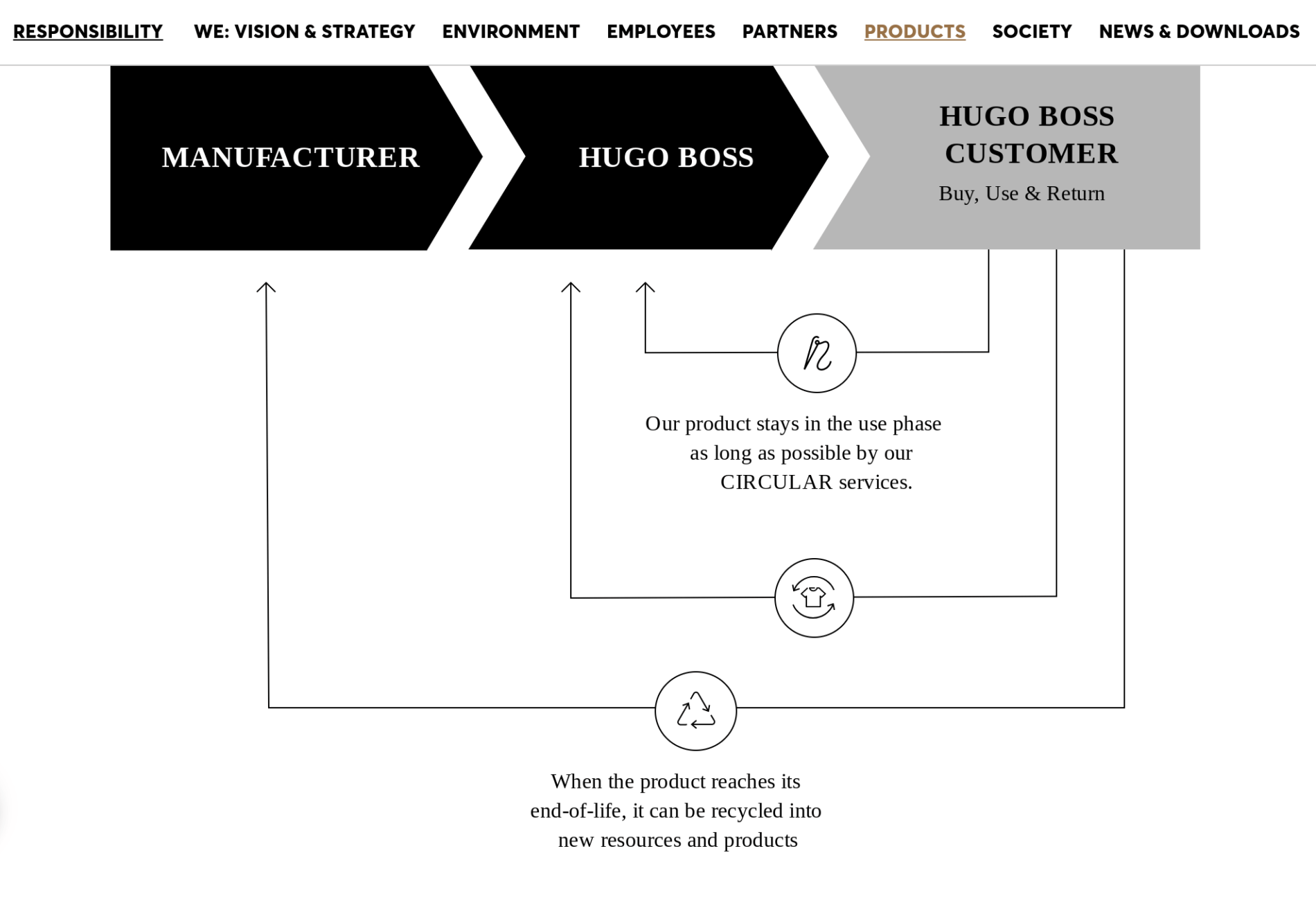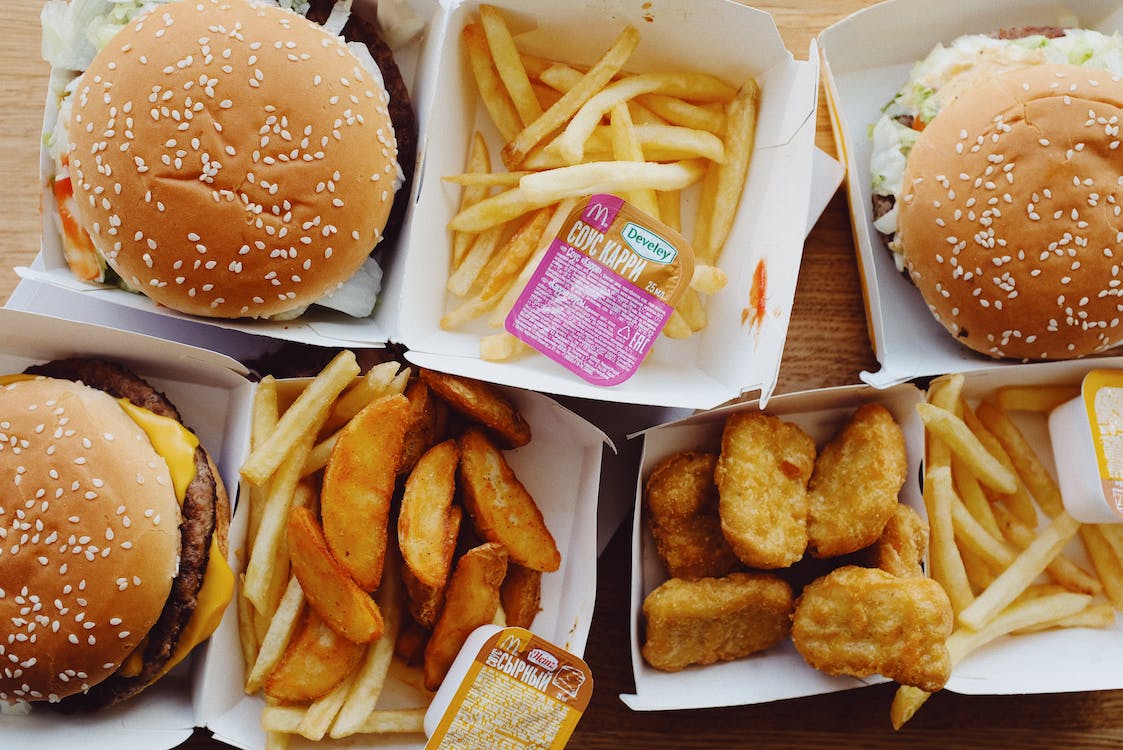Only days have passed since you ripped open presents on Christmas Day…only to find a pair of socks or another tie staring up at you from the shreds of tissue paper. That’s not the slim-fit HUGO BOSS sweater you asked for now, is it?
Germany is home to some of Europe’s most eco-friendly cities. Berlin, Munich, and Hamburg have invested time and money to implement more clean energy and roadmaps for achieving full carbon neutrality within the next 10-20 years. Our ECO shop, the Impakter marketplace, is no stranger to German fashion brands, big or small; Deutschland is also home to the factories and storefronts of a handful of our certified brands.
This is why HUGO BOSS has recently come under our radar. HUGO BOSS, a global brand headquartered in Metzingen and host to celeb ambassadors like Chris Hemsworth and Kendall Jenner, plasters their sustainability initiatives on their websites. HUGO BOSS features popular fashion in Germany and showcases high-quality, German clothing that integrates slow fashion into everyday life.
In the last years many big names of the fashion and streetwear industry have been caught with dirty hands while greenwashing, or they were just not as sustainable as they were declaring to. One such example is Uniqlo, and some might say that even Nike is greenwashing.
But there’s one question we’re all wondering: is HUGO BOSS sustainable?
So, is HUGO BOSS actually environmentally friendly?
Ethical and sustainable fashion is a major concern in the textile industry. This field notoriously exploits sweatshop labor, natural resources, and overproduction.
The great news? Fashion brands from Germany such as HUGO BOSS and Freibeutler say no to harmful industry practices.
To start this intricate, multi-layered initiative, the brand places worker welfare front and center. From designers to factory employees, human rights are a priority that HUGO BOSS highlights in order to respect key components of the United Nations’ 17 Sustainable Development Goals (SDGs).
Related Articles: Sustainable Fashion Trends You Need to Know in 2023 | Upcycled Materials in the Fashion Industry | Are Gucci and Louis Vuitton greenwashing?
This includes Quality Education, Clean Water and Sanitation, Good Health and Well-being, Reduced Inequalities, and Decent Work and Economic Growth. The commitment goes so far as to outline a human rights risk management strategy on the website. There is also an entire section called “Hugo Boss Supports the UN SDGs.” This features the 17 goals they’re committed to.
Human rights are evaluated before issues even arise, starting with a comprehensive “due diligence process” that identifies the human rights risks associated with textile factory labor, as well as the solutions, before they even occur.
One of the sustainable German brands making strides
As soon as 2025, 100% of their plastic packaging will be recycled and sourced sustainably. Their circular strategy of production contributes to a circular economy. This is a founding principle of the United Nations’ 12th Sustainable Development Goal (SDG), Sustainable Consumption and Production Patterns. German brands like Nordlicht and Freibeutler are available on the Impakter marketplace, which only accepts sustainable brands that strictly adhere to this SDG.
View this post on Instagram
Through this strategy, all fabric scraps are reused as long as their quality lasts during the production of HUGO BOSS clothing. This ensures the recyclability of materials. It also monitors overall waste reduction from overproduction.
“At HUGO BOSS, we are committed to this principle: we strive to make our products increasingly circular. For this reason, we have established circularity as an essential part of our sustainability strategy and have set ourselves a corresponding target.”

The goal? To make 8 out of 10 products part of the circular economy by 2030.
HUGO BOSS sustainability policy
When you wonder, is HUGO BOSS sustainable, look no further than the brand’s transparency in its commitment to reducing waste in the textile industry. All levels of the manufacturing hierarchy get targeted. This includes infiltrating circular products, business models, and even customer involvement. All materials and production practices promote regeneration, recyclability, and (again) an overall plummet in waste output.
Cutting-edge technology calculates fabric distribution when cutting material sizes to make the most out of each and every piece.
The company is also realistic in goal-setting; everyone knows that the fashion industry will never completely eliminate production waste. HUGO BOSS’ response? They host giveaways for items left over from leather trimmings, such as wallets and keyrings. Not only does this have a positive impact on manufacturing, but it also eliminates the stress of online shopping.
HUGO BOSS’ commitment to sustainability doesn’t end with waste elimination. Biodiversity is also a priority; this sustainable German brand has blended textiles with replenishing the environment, promoting animal welfare, and standing with climate action.
What material does HUGO BOSS use?
By working with biodegradable materials during fabric sourcing and production, HUGO BOSS has risen to the next level by developing a strategy paper alongside the International Union for Conservation of Nature (IUCN).
https://twitter.com/HUGOBOSS/status/1602279679435673602
Informed by science, this global organization has helped the company tackle its impact on key Earth-related SDG elements. The components HUGO BOSS dedicates itself to are:
- Habitat loss and degradation.
- Overexploitation of plant and animal life.
- Pollution from toxins poisoning textiles.
- Invasive alien species that infiltrate ecosystems.
Through this comprehensive, eight-page strategy paper, it’s safe to say that HUGO BOSS has gone above and beyond in their commitment to goals that make global operations ethical and clean. Of all the sustainable clothing brands out there, especially clothing brands from Germany, HUGO BOSS sustainability makes it easy to choose what items on your wishlist you need to buy. Not only will it help you flaunt chic style, but it will cleanse your wardrobe with Impakter’s favourite item: ethical fashion.
Editors Note: The opinions expressed here by the authors are their own, not those of Impakter.com — In the Featured Photo: A woman holding shopping bags. Featured Photo Credit: Freestocks/Unsplash.






